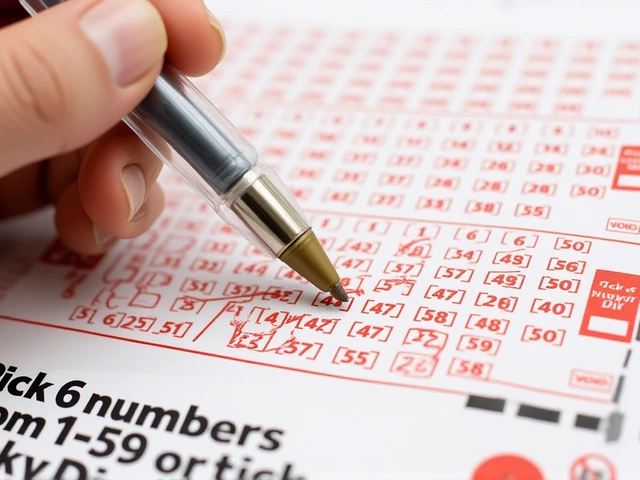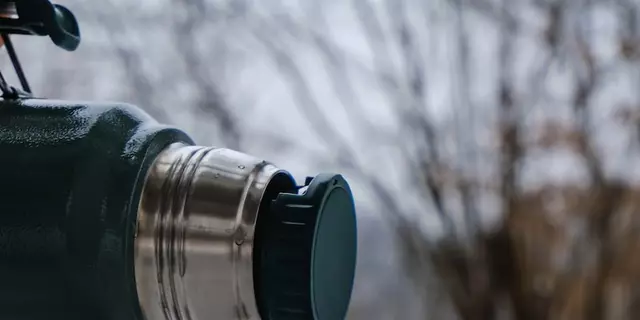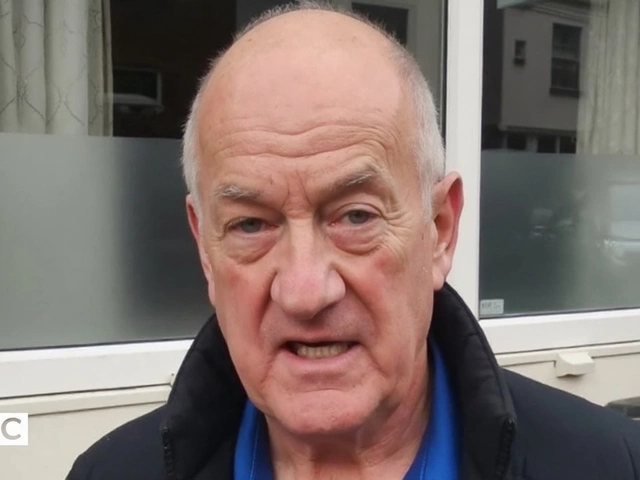
When Spencer Pratt posted a fiery Instagram reel on November 4, 2025, accusing California Governor Gavin Newsom of "padding his stats," he wasn’t just venting—he was escalating a months-long battle over who’s to blame for the devastation of the Palisades Fire. The fire, which swept through Los Angeles’ affluent Palisades neighborhood in late September 2025, destroyed dozens of homes and left Pratt and his wife, pop singer Heidi Montag, facing an $80,000 repair bill on their burned-out property. But what really set Pratt off wasn’t just the flames—it was The New York Times’s October 2, 2025, article by Conor Dougherty, which he called an outright "hit piece."
"Absolute Fucking Bullshit"
Pratt didn’t mince words. In a series of Instagram stories and podcast clips for The Fame Game With Spencer and Heidi, he tore into the New York Times’s claim that the fire was "nearly impossible to plan for." "That’s absolute fucking bullshit," he said during an October 15 episode, mic still on after a producer accidentally left it live. "The reservoir was empty. The hydrants were dry. And they’re telling us there was nothing we could’ve done? That’s not fate—that’s negligence." His anger isn’t just emotional. It’s rooted in data. According to the Los Angeles Fire Department’s preliminary report, the Upper Los Angeles Reservoir—the primary water source for the Palisades—was at 12% capacity when the fire ignited on September 21, 2025. The Los Angeles Department of Water and Power had publicly stated the low level "did not affect firefighting efforts," but Pratt, citing internal documents obtained through a public records request, argues that water pressure dropped by 60% in the fire zone during peak hours. "They had a 200-million-gallon tank sitting there empty while they were building luxury condos," he said. "That’s not an accident. That’s policy."The Builder’s Remedy: A Law That Lets Developers Override Neighborhoods
Pratt’s real target isn’t just the fire—it’s California’s housing law known as the "builder’s remedy." Passed in 2023 under Governor Newsom, the law allows developers to bypass local zoning if a city fails to meet its state-mandated housing goals. In places like the Palisades, that means single-family lots can be replaced with 130- to 150-foot towers housing seven to fifteen units. No neighborhood vote. No environmental review. No input from residents. "They didn’t just burn down houses," Pratt told All Aspect Report in a September 30 interview. "They burned down the idea that people have a right to their own streets." The law’s impact is stark. Between 2023 and 2025, over 1,200 single-family homes in Los Angeles were demolished under the provision—68% of them in high-risk wildfire zones, according to data from the California Department of Forestry and Fire Protection. Pratt’s own property, a 1920s Craftsman on a 12,000-square-foot lot, was one of them. "We were planning to retire here," he said. "Now? We’re just trying to figure out if we can rebuild without a 12-story condo next door."
A History of Controversy—and Attention
Pratt’s public feuds aren’t new. Known as "The Greatest Reality TV Villain" in a 2015 Yahoo! fan poll, he rose to fame on MTV’s The Hills in the mid-2000s, then became a fixture on Celebrity Big Brother UK in 2017, where he and Montag were evicted on day 25 after being nominated by James Cosmo. Their relationship has been reality TV gold: a 2010 arrest in Costa Rica for carrying hunting weapons, a 2021 divorce filing (later retracted after Montag admitted it was a "career move"), and a vow renewal in Carpinteria that same year. Their 2019 reboot show, The Hills: New Beginnings, followed their crystal business, Pratt Daddy Crystals, and ended after two seasons amid declining ratings. But this time, it’s different. Pratt isn’t just reacting—he’s researching. He’s hired a former city planner from San Diego to analyze zoning maps. He’s filed FOIA requests for fire department water pressure logs. He’s even started a Substack newsletter called Palisades Files, which now has over 23,000 subscribers. "I used to think I was just the guy who made people roll their eyes," he said in a recent podcast. "Now I realize I’m the guy who asks the questions nobody else will."What’s Next for the Palisades?
The Palisades Fire recovery effort is now entangled in a legal battle. A coalition of homeowners, including Pratt, filed a lawsuit in Los Angeles Superior Court on October 28, 2025, arguing that the builder’s remedy law violates California’s Environmental Quality Act (CEQA) by ignoring wildfire risk in new developments. The state has until December 15 to respond. Meanwhile, Governor Newsom’s office has not directly addressed Pratt’s claims. A spokesperson told reporters on November 5, "The administration remains focused on expanding housing access statewide." But in a quiet move, the California State Senate’s Housing Committee quietly added a new hearing on November 12 to review the interaction between wildfire risk and housing density laws. Pratt’s team has already scheduled a town hall in Pacific Palisades for November 20, inviting fire chiefs, urban planners, and residents. "We’re not trying to stop housing," he said. "We’re trying to stop bad planning."
Why This Matters Beyond One Neighborhood
The Palisades isn’t unique. Similar battles are brewing in Malibu, Santa Monica, and even parts of San Diego. As climate change pushes more wildfires into urban fringe areas, California’s housing crisis is colliding with its fire crisis. And the tension isn’t just policy—it’s personal. "People think reality stars don’t care about real issues," said Dr. Elena Ruiz, a housing policy professor at UCLA. "But Pratt’s outrage? It’s not just performative. He’s tapping into a real fear: that the people who make the rules don’t live in the places they’re changing." Pratt’s property is still under repair. The $80,000 bill? He’s paying it out of pocket. But he’s also investing $50,000 into a nonprofit he’s launching called Safe Streets California, aimed at helping homeowners challenge development permits that ignore wildfire safety. "I’m not a hero," he told his Instagram followers after posting a photo of his charred front porch. "I’m just tired of being lied to."Frequently Asked Questions
What exactly is the "builder’s remedy" in California housing law?
The builder’s remedy, enacted in 2023, allows developers to bypass local zoning if a city falls short of its state-mandated housing production targets. This means they can construct buildings up to 150 feet tall—seven to fifteen stories—on single-family lots, even if neighbors or city councils object. No environmental review or public vote is required, making it one of the most aggressive housing laws in the U.S.
How did the Palisades Fire expose flaws in California’s water infrastructure?
The Upper Los Angeles Reservoir was at just 12% capacity during the September 2025 fire, and internal LADWP documents show water pressure in the Palisades dropped by 60% during peak firefighting hours. While officials claimed this didn’t affect operations, firefighters on the ground reported struggling to maintain hose streams. Pratt obtained these records through a public records request, fueling his lawsuit against the state.
Why is Spencer Pratt targeting Governor Gavin Newsom?
Pratt blames Newsom’s administration for championing the builder’s remedy law and failing to upgrade critical infrastructure like water reservoirs and fire hydrants in high-risk zones. He argues the governor is using wildfire recovery as a political tool to boost housing stats, while ignoring the safety of residents. Pratt’s November 4 Instagram post accusing Newsom of "padding his stats" went viral and sparked renewed scrutiny.
Are other residents in the Palisades supporting Pratt’s fight?
Yes. Over 180 homeowners in the Palisades have joined Pratt’s lawsuit, and a local group called "Save Our Streets Palisades" has organized monthly town halls since October. While some residents support new housing, many feel the law ignores their lived experience with fire risk and lack of emergency resources. The coalition includes retirees, single mothers, and even a former LAPD captain.
What’s the legal status of Pratt’s lawsuit?
Filed in Los Angeles Superior Court on October 28, 2025, the lawsuit argues the builder’s remedy violates CEQA by failing to assess wildfire risk in new developments. The state’s deadline to respond is December 15. Legal experts say the case could set a precedent—if the court rules in Pratt’s favor, it could force California to rewrite how housing density laws interact with climate risk.
What’s Pratt doing now beyond the lawsuit?
He’s launched a nonprofit, Safe Streets California, to help homeowners navigate development permits and fund legal challenges. He’s also publishing investigative reports on his Substack, Palisades Files, and plans to release a documentary in early 2026. "I’m not going back to reality TV," he said. "This is my next season."




